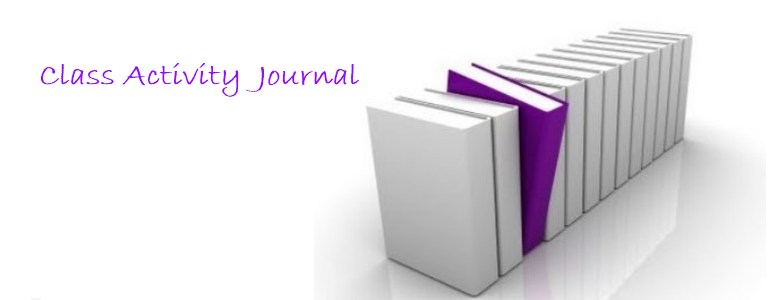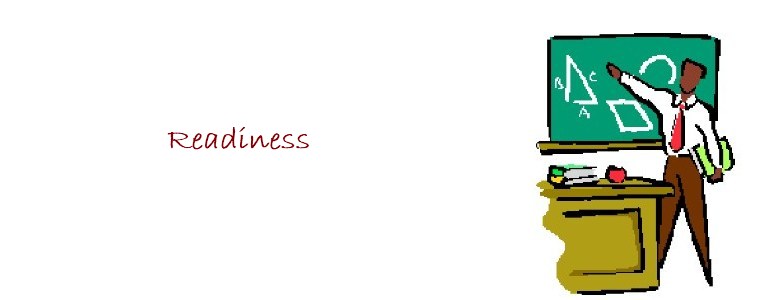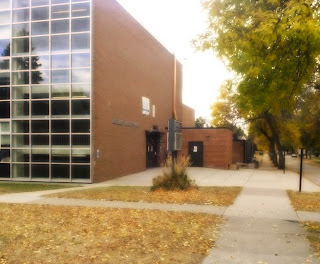URBAN LEARNER-TEACHING RESIDENCY REFLECTIONS
Week 9 -- Triad Three
Monday 11/26/12 to Friday 11/30/12, 8:00 AM- 4:00 PM
Area of Concentration:
Diverse Strategies for Reaching Diverse Urban Learners
"What children learn depends not only on what
they are taught but also how they are taught, their
development level, and their interests and experiences . . .
These beliefs require that much closer attention be paid
to the methods chosen for presenting material."
-- Understanding the Common Essential Learnings,
Saskatchewan Education
From the
Saskatchewan Education’s online Instructional Handbook . . .
Instructional Skills
Instructional skills are the most specific category of teaching behaviors. They are necessary for procedural purposes and for structuring appropriate learning experiences for students. Among the variety of instructional skills and processes are the following six key skills: Explaining, Demonstrating, Questioning, Questioning Technique, Levels of Questions, Wait Time.
1. Explaining
The teacher spends much classroom time explaining or demonstrating something to the whole class, a small group, or an individual. Student resource materials typically do not provide extensive explanations of concepts, and students often need a demonstration in order to understand procedures.
2. Demonstrating
The teacher spends much classroom time explaining or demonstrating something to the whole class, a small group, or an individual. Student resource materials typically do not provide extensive explanations of concepts, and students often need a demonstration in order to understand procedures. Much student learning occurs through observing others. A demonstration provides the link between "knowing about" and "being able to do."
3. Questioning
Among the instructional skills, questioning holds a place of prominence in many classrooms. When questioning is used well: a high degree of student participation occurs as questions are widely distributed; an appropriate mix of low and high level cognitive questions is used; student understanding is increased; student thinking is stimulated, directed, and extended; feedback and appropriate reinforcement occur; students' critical thinking abilities are honed; and, student creativity is fostered.
4. Questioning Technique
The teacher should begin by obtaining the attention of the students before the question is asked. The question should be addressed to the entire class before a specific student is asked to respond. Calls for responses should be distributed among volunteers and non-volunteers, and the teacher should encourage students to speak to the whole class when responding. However, the teacher must be sensitive to each student's willingness to speak publicly and never put a student on the spot.
5. Levels of Questions
While the need for factual recall or comprehension must be recognized, teachers also need to challenge students with higher level questions requiring analysis, synthesis, or evaluation. The consideration of level is applicable at all grade levels and in all subject areas. All students need the opportunity to think about and respond to all levels of questions. Teacher probes or requests for clarification may be required to move students to higher levels of thinking and deeper levels of understanding.
6. Wait Time
Wait time is defined as the pause between asking the question and soliciting a response. Providing additional wait time after a student response also allows all students to reflect on the response prior to further discussion. Increased wait time results in longer student responses, more appropriate unsolicited responses, more student questions, and increased higher order responses. It should be noted that increased wait time is beneficial for students who speak English as a second language or English as a second dialect.
Critical Dispositions Matrix
This week’s experiences highlighted four critical dispositions related to Instructional Strategies:
- Teacher is committed to deepening awareness and understanding the strengths and needs of diverse learners when planning and adjusting instruction.
- Teacher values knowledge outside his/her own content area and how such knowledge enhances student learning.
- Teacher values flexibility and reciprocity in the teaching process as necessary for adapting instruction to learner responses, ideas, and needs.
- Teacher is constantly exploring how to use disciplinary knowledge as a lens to address local and global issues.
Culturally Responsive Framework
Five markers related to Culturally Responsive Teaching and Instructional Strategies have been underscored by this week’s experiences:
- Model behavior
- Instructional strategy planning that accounts for cultural and linguistic diversity
- Activities that allow learners to connect course material to the "real world"
- Learning strategies that activate and celebrate cultural knowledge
- The culturally responsive teacher critically examines the examples used when illustrating key points to ensure they are meaningful and sensitive to learners.
Implications for Practice
My practicum week was very successful. Now that I am comfortable with the students and the daily routines, I feel more relaxed and focused as the classroom leader. This week I was able to assert discipline when necessary – and then move on. I was also able to successfully connect with several individual students.
The student-teaching practicum requires one to live in two worlds at the same time. The student-teacher has little to no control over the curriculum or instructional strategies -- yet must maximize learning in an effort to establish competence.
Key implications toward a practical
Framework for Excellence in Urban Classroom Leadership:
- Expect excellence and reward it.
- Monitor progress and plan interventions.
- Teach learners how to ask questions.
- Conduct activities in a safe, respectful atmosphere.

























